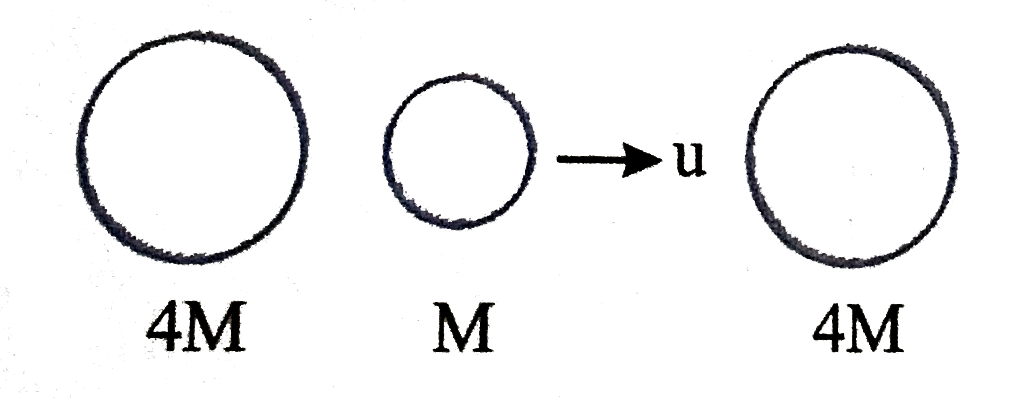Two particles X and Y of equal mass and with unequal positive charges, are free to move and are initially far away from each other. With Y at rest,X begins to move towards it with initial velocity u. After a long time, finally
X will stop, Y will move with velocity u
X and Y will both move with velocities u/2 each
X will stop, Y will move with velocity <u
both will move with velocities <u/2
The correct Answer is:A
Step by step video & text solution for Two particles X and Y of equal mass and with unequal positive charges, are free to move and are initially far away from each other. With Y at rest, X begins to move towards it with initial velocity u. After a long time, finally by Physics experts to help you in doubts & scoring excellent marks in Class 12 exams.
Topper's Solved these Questions
- BOOK - MOTIONCHAPTER - ELECTROSTATICS - I EXERCISE - EXERCISE - 1 (Section D)8videos
ELECTROSTATICS - I
- BOOK - MOTIONCHAPTER - ELECTROSTATICS - I EXERCISE - EXERCISE - 1 (Section E)15videos
ELECTROSTATICS - I
- BOOK - MOTIONCHAPTER - ELECTROSTATICS - I EXERCISE - EXERCISE - 1 (Section B)10videos
ELECTROSTATICS - I
- BOOK - MOTIONCHAPTER - ELECTROSTATICSEXERCISE - Exercise -3 Section (B) Previous Year Problems | JEE Main30videos
ELECTROSTATICS
- BOOK - MOTIONCHAPTER - ELECTROSTATICS-IIEXERCISE - Exercise - 4 (Level - II)30videos
ELECTROSTATICS-II
Similar Questions
A particle of mass m with an initial velocity uˆi collides perfectly elastically with a mass 3 m at rest . It moves with a velocity vˆj after collision , then , v is given by :
View SolutionA particle of mass m moving with speed v in position x - direction collides perfectly inelastically with another identical particle moving with same speed in positive y - direction . Find final velocity of the combination.
View Solution
Knowledge Check
- Question 1 - Select One
Tow particles X and Y, of equal mass and with unequal positive charges , are free to move and are initially far away from each other . With Y at rest , X begins to move towards it with initial v elocity U. After a long time , finally .
AX will stop , Y will move with velocity u.BX and Y will both move with velocityies u/2 each .CX will stop , Y willl move with velocity <u.Dboth will move with velocityes ltu//2.s - Question 2 - Select One
Two positively charged particles X and Y are initially far away from each other and at rest , X begins to move towards Y with some initial velocity. The total momentum and energy of the system are p and E.
AIf Y is fixed, both p and E are conserved.BIf Y is fixed, E is conserved, but not p.CIf both are free to move ,p is conserved but not E .DIf both are free, E is conserved , but not p. - Question 3 - Select One
X and Y are two station 500 km apart. A train start from X and moves toward Y at 20 km/hr another train station from Y at the same times and moves toward X at 30 km/hr. How far from X will they cross each other ?
A200kmB30kmC120kmD40km
Two Particle of equal masses 4M are initially at rest. A particle of mass M moving at speed u collide elastically with one of the larger balls. How many collision occure?
 View Solution
View SolutionConsider the elastic collision f two bodies A and B of equal mass. Initially B is at rest and A moves with velocity v. After the collision -
View SolutionTwo masses of 0.25 kg each moves toward each other with speed 3 ms−1 collide and stick together. Find the final velocity
View SolutionThree charged particles are initially in position 1, "They are free to move and they come in position" 2 "after some time. Let" U1 and U2 be the electrostatic potential energies in position 1and2. Then
View SolutionA ball of mass moving with a velocity u collides head on with a ball B of mass m at rest. If the coefficient of restitution is e. the ratio of final velocity of B to the initial velocity of A is
View Solution
